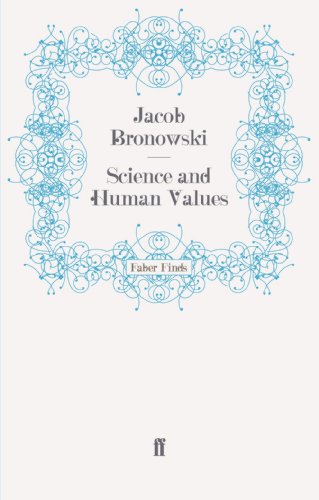Art and Science Both Recreate Reality
The discoveries of science, the works of art are explorations — more, are explosions, of a hidden likeness. The discoverer or the artist presents in them two aspects of nature and fuses them into one. This is the act of creation, in which an original thought is born, and it is the same act in original science and original art. But it is not therefore the monopoly of the man who wrote the poem or who made the discovery. On the contrary, I believe this view of the creative act to be tion. The poem or the discoverv exists in two monrior^tc of tion. The poem or the discovery exists in two moments of vision: the moment of appreciation as much as that of crea¬ tion; for the appreciator must see the movement, wake to the echo which was started in the creation of the work. In the moment of appreciation we live again the moment when the creator saw and held the hidden likeness. When a simile takes us aback and persuades us together, when we find a juxtaposition in a picture both odd and intriguing, when a theory is at once fresh and convincing, we do not merely nod over someone else's work. We re-enact the creative act, and we ourselves make the discovery again. At bottom, there is no unifying likeness there until we too have seized it, we too have made it for ourselves.
How slipshod by comparison is the notion that either art or science sets out to copy nature. If the task of the painter were to copy for men what they see, the critic could make only a single judgment: either that the copy is right or that it is wrong. And if science were a copy of fact, then every theory would be either right or wrong, and would be so for ever. There would be nothing left for us to say but this is so, or is not so. No one who has read a page by a good critic or a speculative scientist can ever again think that this barren \ choice of yes or no is all that the mind offers.
not touclh.' There are no annparanrps to be ohotosraphed. not touch.' There are no appearances to be photographed, no expeiperiences to be copied, in which we do not take part. Science, like art, is is not a copy of nature but a re-creation of her. We re-make nature by the act of discovery, in the poem or in the theorem. And the great poem and the deep theorem n are new to every reader, and yet are his own experiences, because he himself re-creates them. They are the marks of unity in variety; and in the instant when the mind seizes this for itself, in art or in science, the heart misses a beat.
Notes:
...and both make the heart skip a beat with the effort.
Folksonomies: science art two cultures discovery
Taxonomies:
/science (0.549082)
/art and entertainment/books and literature/poetry (0.298108)
/law, govt and politics (0.245211)
Keywords:
hidden likeness (0.935599 (neutral:0.000000)), creative act (0.767794 (positive:0.471396)), science (0.670765 (negative:-0.332517)), crea¬ tion (0.624595 (neutral:0.000000)), art (0.582136 (negative:-0.325082)), poem (0.566632 (positive:0.545941)), Recreate Reality (0.554850 (positive:0.299639)), heart skip (0.539373 (neutral:0.000000)), great poem (0.532087 (positive:0.545941)), original thought (0.500152 (neutral:0.000000)), single judgment (0.499492 (negative:-0.532602)), original science (0.498574 (positive:0.327195)), original art (0.495230 (positive:0.327195)), deep theorem (0.494884 (positive:0.545941)), barren choice (0.491743 (negative:-0.509516)), science sets (0.490188 (negative:-0.645934)), speculative scientist (0.488816 (negative:-0.509516)), good critic (0.480404 (negative:-0.509516)), discovery (0.463893 (positive:0.547475)), nature (0.436459 (negative:-0.247670)), moment (0.418362 (neutral:0.000000)), copy (0.392271 (negative:-0.498281)), beat (0.331990 (negative:-0.613425)), appreciation (0.326225 (neutral:0.000000)), creation (0.321296 (positive:0.100644)), work (0.317574 (negative:-0.262905)), theory (0.314629 (positive:0.321669)), mind (0.308590 (negative:-0.509516)), appreciator (0.288091 (neutral:0.000000)), simile (0.286604 (neutral:0.000000))
Entities:
scientist:JobTitle (0.984543 (negative:-0.509516))
Concepts:
Theory (0.954898): dbpedia | freebase
Mind (0.865637): dbpedia | freebase | opencyc
Reality (0.782204): dbpedia | freebase
Aesthetics (0.764733): dbpedia | freebase
The Creation of Adam (0.756689): dbpedia | freebase | yago
Thought (0.755495): dbpedia | freebase | opencyc
Science (0.678640): dbpedia | freebase | opencyc
Modernism (0.657887): website | dbpedia | freebase






